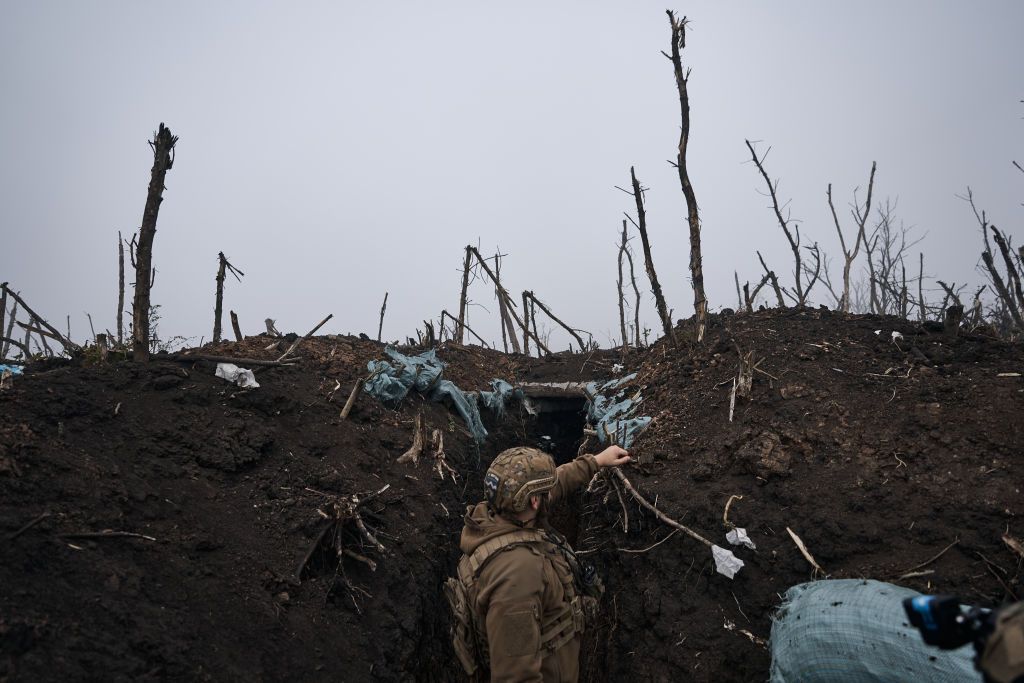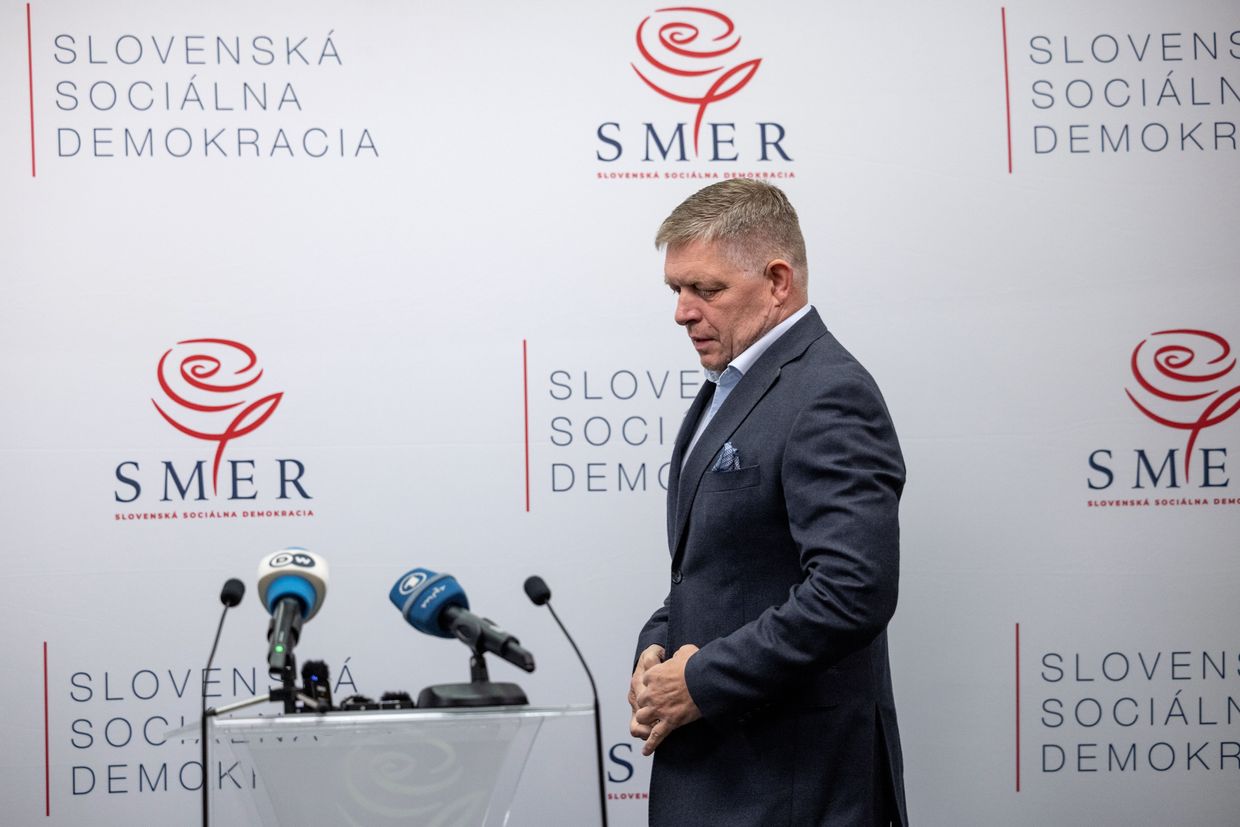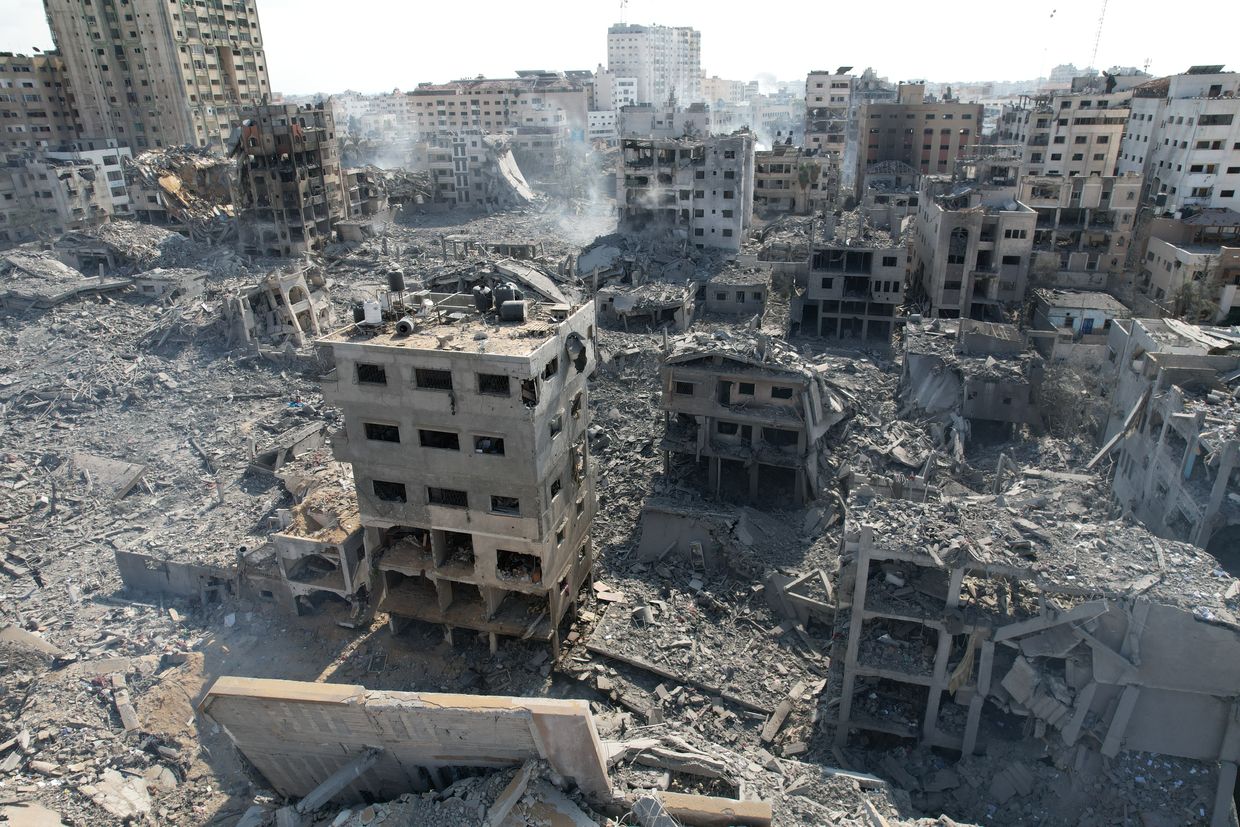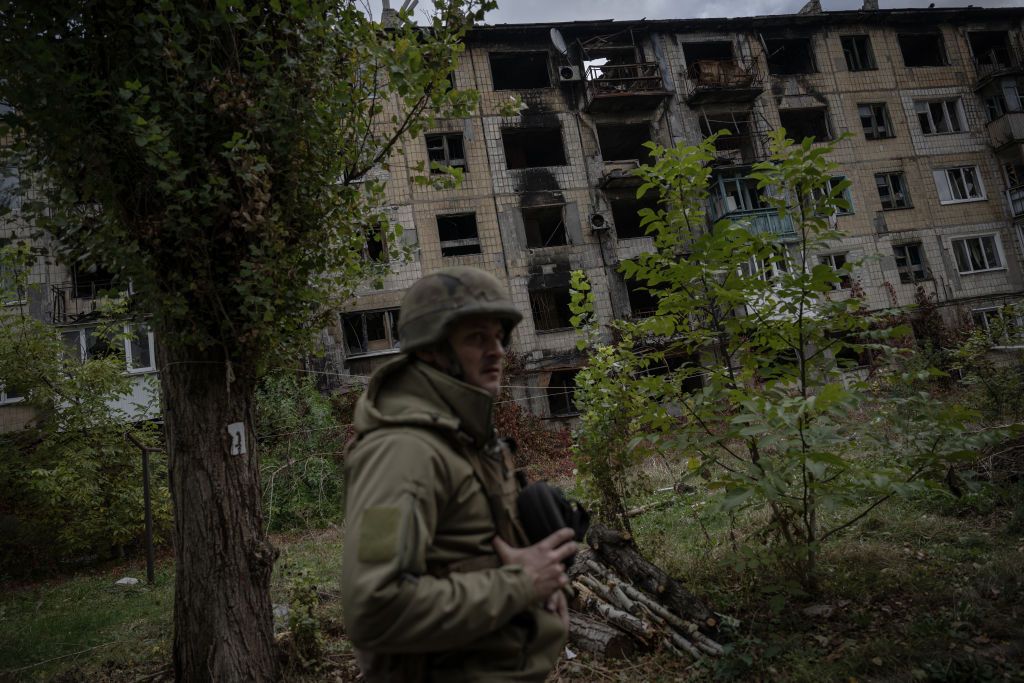Ukraine war latest: Russia endures heavy losses near Avdiivka, suffers from low morale, White House says

Key developments on Oct. 26:
- White House: Russia endures heavy losses near Avdiivka, suffers from low morale
- US announces $150 million aid package for Ukraine
- Infrastructure Minister denies suspension of Ukrainian Black Sea corridor
- New Slovak PM Robert Fico rules out military aid for Ukraine
- Hamas delegation visits Moscow
- Danilov: Ukraine to increase domestic ammunition production
U.S. National Security Council spokesperson John Kirby said that according to Washington's assessments, Russia is suffering significant losses and experiencing low morale due to its attacks on Avdiivka, European Pravda reported on Oct. 26.
"We have information that the Russian military has been actually executing soldiers who are refusing to follow orders," Kirby said during the press briefing, according to the Agence France Presse.
"We also have information that Russian commanders are threatening to execute entire units if they seek to retreat from Ukrainian artillery fire."
Kirby did not provide further details on the alleged executions or on how Washington had obtained the information.
Russia has been intensifying its attacks against Avdiivka, a front-line town a few kilometers north of occupied Donetsk, for several weeks. Moscow has reportedly thrown in extensive force in an effort to encircle the town, suffering heavy losses in manpower and equipment in the process, Kyiv said.
This was also confirmed by Kirby, who said that since Oct. 11, Russia has lost "at least 125 units of armored vehicles around Avdiivka and more than a battalion's worth of military equipment."
Ukrainian forces in the sector "were able to hold their own and are holding their defense," he added.
The Kremlin is likely to continue its offensive in the coming months and "may achieve some tactical successes," the U.S. official believes. This will, however, come at the cost of thousands of Russian soldiers thrown into battle without proper training and with poor morale, Kirby stressed.

US announces $150 million aid package for Ukraine
The U.S. Defense Department announced on Oct. 26 it would provide Ukraine with another military assistance package worth around $150 million.
The aid package includes air defense capabilities, artillery shells, anti-tank weapons, and other equipment needed to repel Russian aggression.
The U.S. will send Ukraine additional ammunition for National Advanced Surface-to-Air Missile Systems (NASAMS), High Mobility Artillery Rocket Systems (HIMARS), artillery, and small arms.
Ukraine's military will also receive U.S. air defense missiles of AIM-9M and Stinger types, Javelin anti-armor systems, night vision devices, and cold weather gear, among other things.
"The Biden Administration calls on Congress to meet its commitment to the people of Ukraine by passing additional funding to ensure Ukraine continues to have what it needs to defend itself against Russia's brutal war of choice," reads the Pentagon's press release.
"Security assistance for Ukraine is a smart investment in our national security. It helps to prevent a larger conflict in the region and deter potential aggression elsewhere while strengthening our defense industrial base and creating highly skilled jobs for the American people."
The aid package announcement comes a day after Republican Congressman Mike Johnson was elected as the new House Speaker, filling the seat left empty for weeks following the ousting of Kevin McCarthy.
One of ex-President Donald Trump's most loyal supporters in Congress, Johnson has criticized the delivery of aid to Ukraine. In May 2022, Johnson voted against a $40 billion aid package to Ukraine, claiming that his focus lies with solving domestic affordability challenges.
Slovak PM Robert Fico rules out military aid for Ukraine
Slovakia's newly-appointed Prime Minister Robert Fico said his country would no longer send arms to Ukraine and vowed to promote this stance also on the European level, the Guardian reported on Oct. 26.
Fico, whose SMER party won the parliamentary elections on a pro-Russian, populist platform, repeated his previous promise that Slovakia would halt all military aid for Ukraine, which continues to face Russian aggression.
Speaking to Slovak lawmakers on Oct. 26, he however added that Bratislava would continue providing humanitarian assistance.
Under the previous governments, Slovakia has provided Ukraine with extensive humanitarian and military assistance, including artillery, fighter jets, and other support.
Fico plans to promote his views in Brussels, where he is set to join a two-day EU leaders' summit on Oct. 26-27.
"I will support zero military aid to Ukraine … an immediate halt to military operations is the best solution we have for Ukraine. The EU should change from an arms supplier to a peacemaker," Fico said.
The prime minister also added he would "not vote for any sanctions against Russia unless we see analyses of their impact on Slovakia. If there are to be such sanctions that will harm us, like most sanctions have, I can see no reason to support them."
Kremlin spokesman Dmitry Peskov was dismissive of Fico's statements, saying that "Slovakia did not have such a big share in the supply of weapons, so it will hardly affect the entire process."
Fico's new government, comprised of SMER, the social-democratic HLAS, and the ultranationalist Slovak National Party (SNS), was appointed by the country's President Zuzana Caputova on Oct. 25.
The populist leader vowed shortly after his appointment that Bratislava would maintain a "sovereign foreign policy." He has previously pledged that "not a single round" will be sent to Ukraine upon his election.
Infrastructure Minister denies suspension of Ukrainian Black Sea corridor
Infrastructure Minister Oleksandr Kubrakov denied reports that Ukraine’s temporary grain corridor in the Black Sea had stopped operations on Oct. 25.
“The information regarding the cancellation or unscheduled stoppage of the temporary Ukrainian corridor for the movement of civilian vessels from and to the ports of the Big Odesa (Oblast) is false,” the minister wrote on X (formerly Twitter).
“All available routes established by the Ukrainian Navy are valid and being used by civilian vessels.”
Earlier on Oct. 26, the Barva Invest consultancy firm, specializing in the Ukrainian grain and oilseeds market, reported that the Ukrainian Sea Ports Authority (USPA) announced the suspension of the corridor effective from Oct. 26 due to “increased Russian aviation activity.”
Vessels have been using the Ukrainian corridor since Sept. 16 following the collapse of the Black Sea Grain Initiative in July after Russia pulled out.
The corridor has been showing signs of success even without Russia’s agreement. Thirty-three ships have exported 1.3 million metric tons of agricultural products and other goods since its inception, Kubrakov noted.
Currently, 23 ships are loading at the ports of Odesa, Chornomorsk, and Pivdennyi.
So far the temporary corridor has not reached the levels of the grain initiative but Deputy Head of the Agrarian Council Denys Marchuk said it could eventually export 2-2.5 million tons per month.
Rather than sailing directly to the Bosphorus Strait through international waters, ships hug the coastlines of Ukraine and NATO members Romania and Bulgaria with assistance from the Ukrainian navy.
However, the threat from Russia remains and many ship owners are hesitant to travel the route.
Russian President Vladimir Putin announced last week in a televised address that Russian jets armed with Kinzhal ballistic missiles will permanently patrol the Black Sea.
Currently, the Danube River ports see the highest throughput, exporting 2.3 million metric tons last month, according to Agriculture Minister Mykola Solskyi.
The minister said that Ukraine needs to export 6 million tons per month as grain piles up in the country amid export issues.
Hamas delegation visits Moscow
A delegation of the militant group Hamas, which governs Gaza, arrived in Moscow on Oct. 26, Russian Foreign Ministry spokesperson Maria Zakharova said without elaborating on the visit details.
Hamas also reported on the visit via their official Telegram channel, saying that the delegation is headed by the group's senior political member, Moussa Abu Marzouk.
The delegation reportedly met with Mikhail Bogdanov, Russian Deputy Foreign Minister and President's Special Representative for the Middle East, discussing the Israel-Gaza ongoing war.
Hamas' representatives "praised the position of Russian President Vladimir Putin and the efforts of active Russian diplomacy, and stressed the need for the international community to shoulder its responsibilities towards the crime of genocide committed by the Zionist government," according to the group's message.
The fighting in Israel and the Gaza Strip broke out following Hamas' attack on Israeli settlements on Oct. 7. Tel Aviv responded by retaliatory airstrikes against Gaza and a total blockade of the enclave. Thousands of people, mostly civilians, have been killed on both sides.
While Ukraine has expressed full solidarity with Israel in the wake of Hamas' attack, Putin has been critical of Israel's conduct in the conflict. His criticism of civilian causalities in the Gaza war contrasts with the violence unleashed by Moscow against Ukraine in the full-scale invasion, which has already cost thousands of military and civilian lives.
There has been considerable speculation about Russia's involvement in the Hamas attack on Israel but little concrete evidence.
Ukraine's military intelligence chief Kyrylo Budanov noted that Hamas' advanced drone tactics, similar to those used by Russian forces in Ukraine, indicate that Moscow may have been involved in the training of Palestinian fighters.
The intelligence agency also said that Russia has transferred Western-made weapons captured in Ukraine to Hamas in an effort to discredit Kyiv.
Danilov: Ukraine to increase domestic ammunition production
Ukraine will soon step up its production of shells by involving private companies in the process, Secretary of the National Security and Defense Council Oleksii Danilov said on Oct. 26.
"They (the companies) have ordered the appropriate equipment, some equipment is already being installed in closed areas of enterprises, and we will see an increase in our own production in the near future," Danilov said on national television.
The official emphasized that not only Ukraine but its allies, as well as Russia, were suffering from ammunition shortages.
"Our partners, the entire civilized world, began to develop additional (production) capacities right from the beginning of this aggression, from April to May 2022. This is not an easy task, they cannot be built in a month or two," he said.
According to Danilov, it's challenging to determine the exact amount of shells needed for the Ukrainian army as "there has not been a war of such intensity since WWII."
His statement comes a day after unnamed sources told Bloomberg that the European Union was falling short of its target of providing Ukraine with one million rounds of artillery shells by March.
The EU pledged in May to deliver one million shells per year to Ukraine, partially by digging deep into its existing stockpiles but also by increasing domestic production capacity.
However, now that six months have passed, only 30% of the promised shells have been delivered, the sources said. At this slowed rate, the EU risks failing to meet its target.














